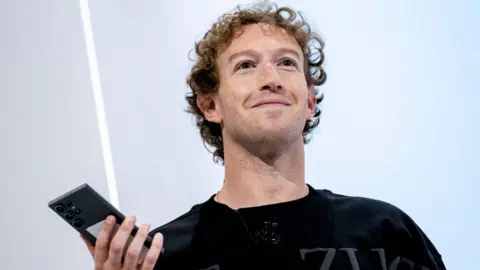Meta’s CEO and founder, Mark Zuckerbag has announced an end to its partnership with Fact-checking partners, as part of changes to the company’s policy on content moderation. The Facebook founder tied this decision to a need to prioritise free expression and stop censorship.
His speech, which was posted as a video on Facebook and text on Threads, read in part “The recent elections also feel like a cultural tipping point towards, once again, prioritising speech. So, we’re going to get back to our roots and focus on reducing mistakes, simplifying our policies, and restoring free expression on our platforms. More specifically, here’s what we’re going to do.
“First, we’re going to get rid of fact-checkers and replace them with community notes similar to X starting in the US. After Trump first got elected in 2016, the legacy media wrote nonstop about how misinformation was a threat to democracy. We tried in good faith to address those concerns without becoming the arbiters of truth, but the fact-checkers have just been too politically biased and have destroyed more trust than they’ve created, especially in the US. So, over the next couple of months, we’re going to phase in a more comprehensive community notes system.”
This excerpt, within the context of the entire speech amongst other issues, alleged that fact-checkers are politically biased and have destroyed political trust. While this sweeping policy change has been linked to political alignment with the Donald Trump administration, set to be inaugurated on January 20th, 2025, a key issue for stakeholders in the information ecosystem has been the framing of fact-checking efforts as based on bias and part of Meta’s content moderation problems. These are claims that should not be made without concrete evidence provided.
The Director of the International Fact-Checking Network, IFCN, Angie D Holan, reacted to the announcement saying, “Fact-checking journalism has never censored or removed posts; it’s added information and context to controversial claims, and it’s debunked hoax content and conspiracy theories. The fact-checkers used by Meta follow a Code of Principles requiring nonpartisanship and transparency. It’s unfortunate that this decision comes in the wake of extreme political pressure from a new administration and its supporters. Fact Checkers have not been biased in their work–that attack line comes from those who feel they should be able to exaggerate and lie without rebuttal or contradiction.”
In a rebuttal article, Alexios Mantzarlis, director of the Security, Trust, and Safety Initiative at Cornell Tech and former IFCN CEO, pointed out that “Meta has 8 years’ worth of data to prove that the fact-checking program was biased. Zuckerberg shared none. Instead, he chose to ignore research that shows that politically asymmetric interventions against misinformation can result from politically asymmetric sharing of misinformation…American conservatives tended to share more URLs from false news websites on Twitter even when the definition of “false news” was left to a vote of a bipartisan group of laypeople rather than professional fact-checkers.”
Mantzarlis also established that most content evaluated by fact-checking are not political and fact-checkers can hardly be held responsible for mistakes made by Meta’s content moderation algorithms.
Let us not forget that politics ushered in Meta’s third party Fact-checking program and now, it comes to an end under clearly political circumstances, with the company having taken other actions to align itself with the incoming Republican led administration. For Europe, not much will change owing to the region’s Digital Services Act which enforces the war on misinformation by statute but Meta’s new policy direction includes a plan where the company will work with the Donald Trump administration, to push back on governments around the world.
In the past, the social media giants censored content, not because of fact-checking but as a result of algorithms and government requests. The evidence for this abounds and we can see from a few examples here, here, and here.
Fact-Checking organisations know that this move signals an end to one revenue stream but does it really mean Meta through Facebook, Instagrams and Threads would no longer censor content? Now that Meta has thrown fact-checkers under the bus, claiming it seeks to restore free speech to the platform, it is also worth asking if it will also stop working with the governments of countries where it censors content?






